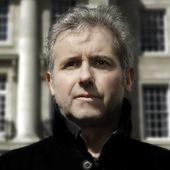The arts are a shadow health service – here’s why
The UK’s Health Secretary, Matt Hancock, has said that doctors should prescribe dance classes and trips to concert halls as well as pills and physio – and set out plans to make this “social prescribing” a reality. He clearly gets how the arts can benefit health and well-being. But there is more to do. The health benefits to be gained from creative practice are enormous and universal – and so need widespread investment.
People tend to think of personal health in a limited way. Medical services of one kind or another are largely given the onus of keeping people well and fixing them when they become poorly. We are encouraged to stop smoking, drink less alcohol, lose weight and exercise. More recently, the idea of well-being has helped to shift that somewhat. Yoga and mindfulness, to take two examples, are now heavily associated with the idea of health.
But rarely, if at all, are people encouraged to take up creative hobbies: the arts do not tend to be thought of in medical terms. But creative practices in the arts and humanities really can help people stay healthy or recover when illness strikes. By engaging in creative activities such as music making and listening, dance, drawing, comedy, reading groups, visiting museums and galleries and so on, people can do their minds and bodies the world of good. The arts can therefore be thought of as the shadow health service. They can improve our physical and mental health, not least through the increased social connections they generate.
Creative practice has documented potential for advancing health and well-being. Indeed, some arts and expressive therapies, such as art therapy, music therapy, movement or dance therapy, poetry therapy and psychodrama, are already well established in health services.
Over the last ten years, research has demonstrated the importance of creative practice in the arts and humanities. They can help maintain health, provide ways of breaking down social barriers and expressing and understanding experiences and emotions, and assist in developing trust, identities, shared understanding and more compassionate communities. So, hopefully, this sidelining of the arts in health terms is changing.
Drumming and dancing
In 2017, the UK government published a report on the compelling case of how creative practices can transform health and well-being. A programme of research that I directed contributed to this body of evidence. In this five-year programme, we measured mental health and well-being benefits for a range of creative activities. Particularly compelling new evidence emerged in the group drumming project, which found that it can reduce depression and anxiety and improve social resilience in mental health service users.
It is not just people with specific health conditions who can benefit from creative resources and practices. The evidence of clear benefits for health and well-being more generally is now robust in relation to a wide array of creative practices such as singing in choirs, listening to particular kinds of music, engaging in the visual arts, dancing, reading or joining reading groups and gallery or museum visiting.
The creative arts and humanities are one of the best ways to enhance public health and social connectedness. More than this, these resources do not need to be prescribed by a doctor. The public can access for themselves a shadow health service of creative facilities and resources to buffer themselves against the hard knocks of life, recover from illness or improve quality of life despite illness or poor health.
A world without song?
Just imagine for a moment a world robbed of facilities, resources and activities in the creative arts and humanities: no music, no singing, no art, no stories to read or share, no dancing, no theatre, no film, no galleries or museums, no crafts. It should be clear that health and well-being would be difficult to attain. A short reflection on such a horrifying prospect brings home just how much we would miss them. It is easier and more inspiring to recognise them as a second national health service.
In the UK, there is constant criticism of the way that public funding for the arts tends to favour London over other regions. There are also ever-looming spending cuts, not least to museums and galleries, and myriad challenges to funding in a period of austerity, as there are in many other countries. In the UK and elsewhere, it’s time for governments to take the arts and humanities more seriously as a cost effective, national asset that impacts on the health and well-being of a nation.
Why shouldn’t governments strive towards a National Health Humanities Service (NHHS) that works strategically alongside health and social care services, helping to unblock queues to see GPs, complementing traditional medical interventions, and transforming care environments in our hospitals, the community or people’s homes? Why leave the arts and humanities on the fringe – as merely ornamental or decorative? They deserve more than being left on a funding drip-feed.
Paul Crawford, Professor of Health Humanities, University of Nottingham
This article is republished from The Conversation under a Creative Commons license. Read the original article.



